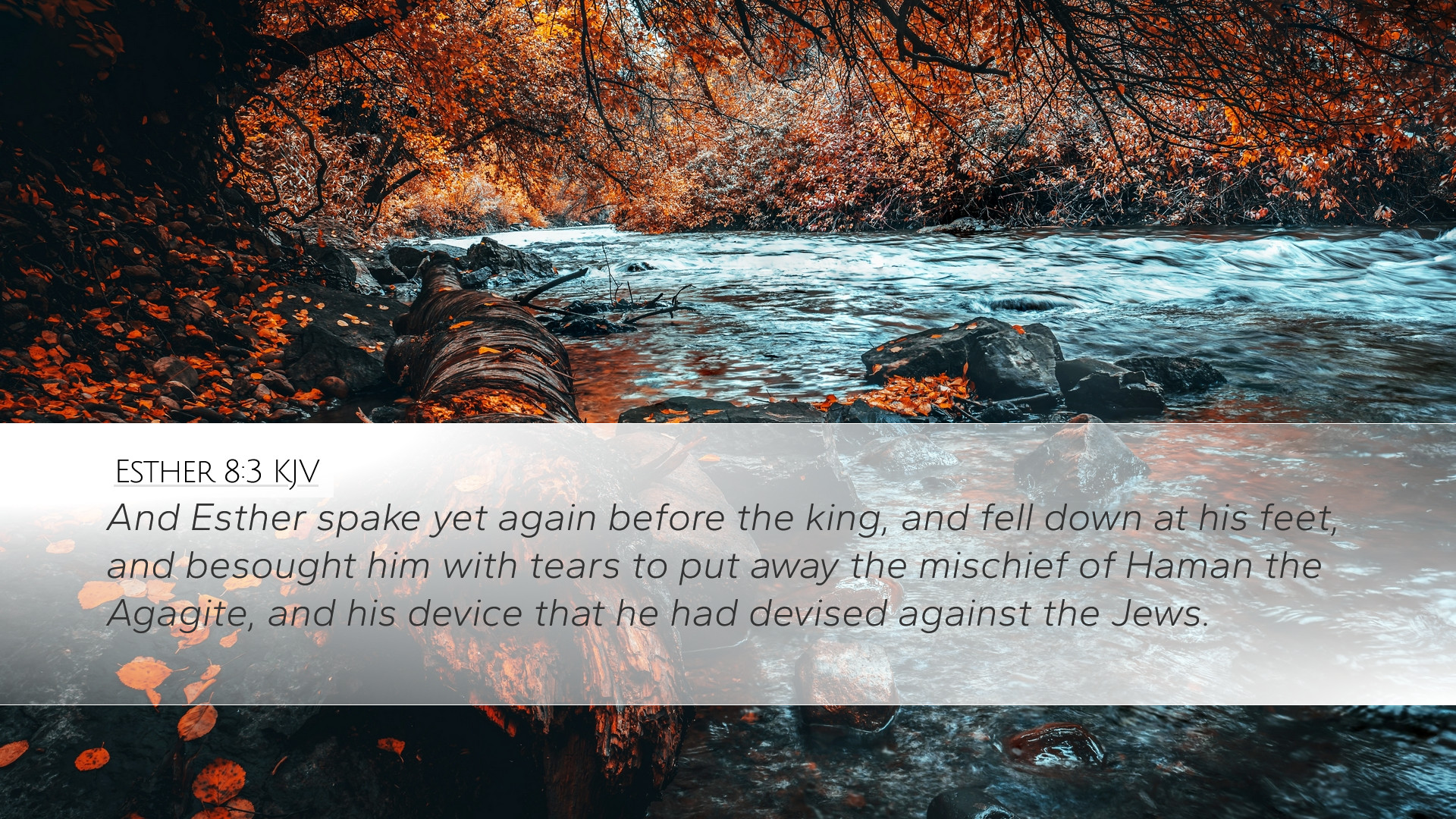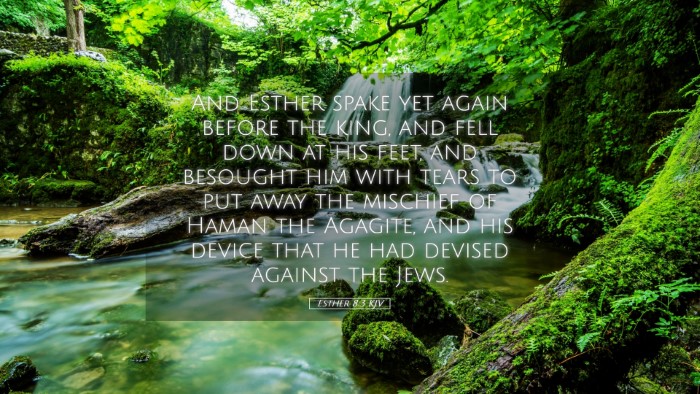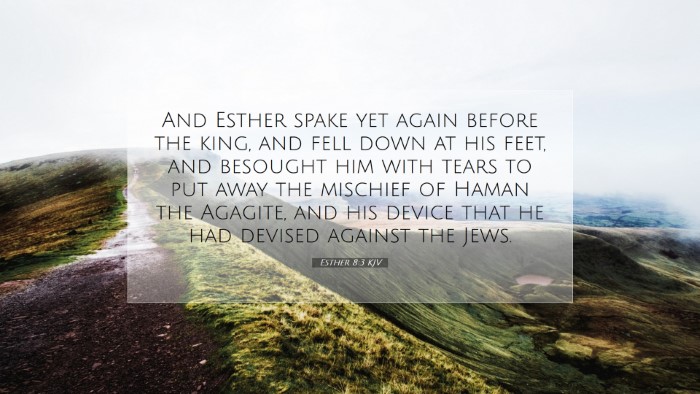Old Testament
Genesis Exodus Leviticus Numbers Deuteronomy Joshua Judges Ruth 1 Samuel 2 Samuel 1 Kings 2 Kings 1 Chronicles 2 Chronicles Ezra Nehemiah Esther Job Psalms Proverbs Ecclesiastes Song of Solomon Isaiah Jeremiah Lamentations Ezekiel Daniel Hosea Joel Amos Obadiah Jonah Micah Nahum Habakkuk Zephaniah Haggai Zechariah MalachiEsther 8:3
Esther 8:3 KJV
And Esther spake yet again before the king, and fell down at his feet, and besought him with tears to put away the mischief of Haman the Agagite, and his device that he had devised against the Jews.
Esther 8:3 Bible Commentary
Commentary on Esther 8:3
Bible Verse: Esther 8:3 - "And Esther spake yet again before the king, and fell down at his feet, and besought him with tears to put away the mischief of Haman the Agagite, and his device that he had devised against the Jews."
Introduction
The Book of Esther stands out in the narrative of Scripture for its unique setting and compelling storyline. The text of Esther 8:3 encapsulates a pivotal moment wherein Esther, driven by deep anguish, intercedes on behalf of her people. This commentary aims to explore the profound implications of this verse through insights from respected public domain commentators such as Matthew Henry, Albert Barnes, and Adam Clarke.
Meditation on Esther's Intercession
Esther's plea to the king is marked by a deep emotional appeal. As she "fell down at his feet," it indicates her humility and desperation. This gesture is significant, as it not only reflects her status as queen but also emphasizes her willingness to risk it all for her people. Henry notes that “her falling at the king's feet points out the nature of her petition and the importunity of her supplication.”
Understanding Haman's Device
Haman’s wicked scheme aimed at the destruction of the Jews renders the urgency of Esther's plea even more poignant. Albert Barnes elucidates that Haman, a powerful official, represents the broader theme of evil in opposition to God’s people. Esther’s recognition of Haman’s device shows her understanding of the threat that looms over her people and highlights the gravity of her circumstances.
Theological Implications
The theological implications embedded in this verse transcend the historical narrative. It brings to light the importance of intercession and advocacy for justice, traits that resonate with believers called to stand for righteousness. Adam Clarke observes, “Esther's passionate plea symbolizes the persistent cry of the righteous before a sovereign God, beseeching mercy in times of peril.” Such an understanding challenges believers to persist in prayer and action when faced with societal injustices.
Emotional Depth and Spiritual Warfare
The emotional depth of Esther's plea resonates with those in pastoral ministry. Henry remarks, “Tears are often the language of soul beneath the deep distress that mere words cannot convey.” This indicates that emotional expressions in prayer can be powerful forms of communication with God. Furthermore, Esther's situation mirrors the spiritual warfare believers encounter as they navigate through trials and tribulations, advocating for deliverance through fervent prayer.
Leadership and Responsibility
Esther's role as a leader comes into sharp focus in this verse. Her willingness to confront the king signifies the responsibilities of those in positions of influence. Barnes highlights that “moral courage is required to stand for what is right, even at great personal risk.” This presents a profound challenge to modern-day leaders in the church and community, calling them to advocate for the vulnerable and oppressed.
Conclusion
In summary, Esther 8:3 serves as a powerful reminder of the call to intercede, the role of leadership, and the reality of spiritual warfare. Her passionate plea reflects the heart of a leader who is deeply enmeshed in the lives of her people. As we reflect on this text, may we be encouraged to adopt a similar posture of advocacy and engagement, grounded in faith and compassion.


